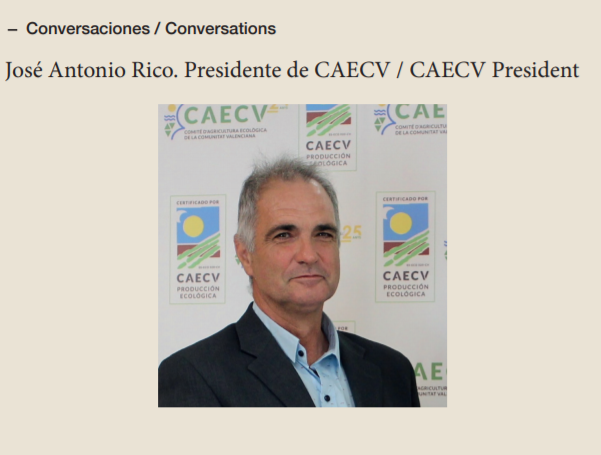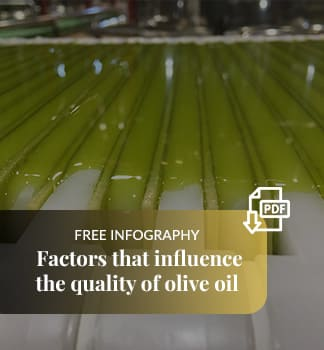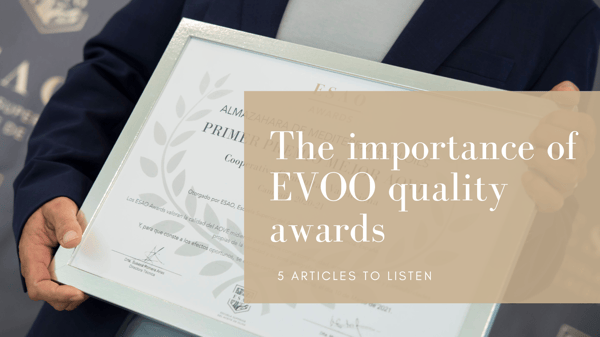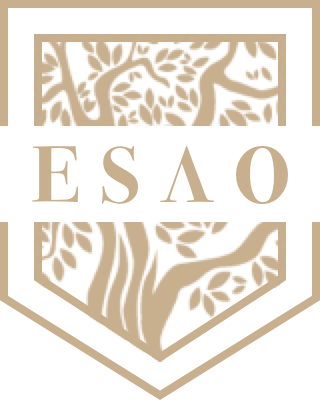Listen to this article
José Antonio Rico Navarro is president of the Valencian Community Ecological Agriculture Committee (CAECV) since 2015, although he was already chairing the entity between 2005 and 2010. Since the birth of CAECV, in addition to being president, he has held the position of member in the Plenary of the Governing Body in various legislatures.
At 54 years old, this organic table grape producer from Novelda (Vinalopó Mitjà) has managed a family business that has been marketing this product for more than 25 years. Rico is a person who lives by and for organic farming: he considers it a philosophy of life with great social, environmental and economic impact.
What does it mean for CAECV that there is a guide to the best organic olive oils certified by the CAECV of the Valencian Community?
The olive oil sector in the Valencian Community is a historical benchmark at a national level and, possibly, it has not had the recognition it deserves, despite having more than 70 varieties that make it the community with the most diversity of vegetable material.
The commitment to participate, with ESAO, in the First Contest of organic EVOOs aims to value the work that is being made from the sector and, what is more important, that there is a social recognition that we consider to be much more than deserved.
How did you come up with the idea of collaborating with ESAO to announce the awards for the best certified olive oils?
In 2020 we organized, in collaboration with PROAVA, the First Organic Wines Contest of the Valencian Community, and the experience was very positive.
At the end of 2020, within the framework of Gastrónoma, we began the first contacts with ESAO because we consider that, like wines, the olive oil sector is very important in our territory. In fact, it is the third with the most certified surface area, only behind the vineyard and nuts.
In recent years, the increase in the area dedicated to the cultivation of olive groves for certified organic oil has not stopped growing, until it has become one of the productions with the largest certified area in the entire Valencian Community, with more than 5,600 hectares and a production close to 5,000 tons.
All this has encouraged us, in collaboration with ESAO, which knows the sector perfectly, to embark on this adventure so that our EVOOs have their recognition through a contest that brings together all the oil mills and cooperatives registered in the CAECV.
What would you advise all those organic producers who do not have the CAECV certificate, or who have been producing for a short period of time?
You can only be an organic farmer if you are in the records of the competent authorities and, consequently, under control.
It is necessary for a farmer or company that works well and with a compatible management with organic production to take the final step and formalize their situation, as long as they are convinced of complying with the regulations established by the European Organic Production Regulation.
We are not only talking about a legal requirement, but also a social one, where the status of the certification is very important.
How do you think the Guide can help in the dissemination and promotion of organic olive oils?
It is the first guide with this purpose in our Community and, without a doubt, it will become a benchmark because the perspectives are good and the need for proven references is important.
Do you think the awards help in the sale and distribution of extra virgin olive oils?
I believe that initially many doors can be opened to the attention of prominent commercial operators, but the important thing comes with the ability to maintain high levels of quality over time and, in the case of the organic sector, I am sure that we will be able to succeed.
How do you value the quality of organic oils for some time now? How has the evolution been?
We are lucky that our territory has the ideal climatic conditions for the production of high quality oils, as well as a rural culture linked, in one way or another, to the world of olive oil.
We are possibly talking about the only crop that we can find anywhere in the Region, from north to south. If we add to this, the professionalism and dedication of our farmers, we obtain oils of excellent quality and are recognized throughout the world.
Without a doubt, I consider that we are in our best moment, but I believe that the best is yet to come.
What are the main concerns of CAECV and virgin olive oil at the moment?
CAECV needs motivated and excited agriculture, because we have reasons for optimism. Agriculture, by definition, is a difficult sector with frequent ups and downs and a complicated generational changeover, which is why it is necessary to have knowledge and social recognition of our agriculture and its nuances.
With regard to virgin olive oil, having a high quality product requires rethinking many commercial and social aspects so that its production is profitable.
What would you say to encourage all those producers to continue betting on the quality of their products?
It is very simple. In our Community, the commitment to quality is the most viable option, since by price we do not have the capacity to be competitive.
Why would you bet on quality versus quantity?
In any project it is important to define the objectives. The characteristics of our territory are very marked: small plots, smallholdings and rainfed agriculture in areas with very low rainfall.
It is a reality that contrasts with producers with a lot of experience and a wide range of varieties, where the possibilities of having a unique and high quality product are very high.
* This conversation is an extract of the ESAO GUIDE, 2020/21 Edition. You can check the current guide here.
This guide collects the extra virgin olive oils awarded in the three most important competitions in the olive sector. In the ESAO GUIDE you can find:
- ESAO Stars, a recognition of the quality of the most awarded oils.
- The winners of the international competition Mario Solinas of the International Olive Council.
- The winners of the Food of Spain awards, of the Ministry of Agriculture, Fisheries and Food of the Government of Spain and
- The winners at the ESAO Awards.
- Interviews with personalities from the olive sector.
.png)






